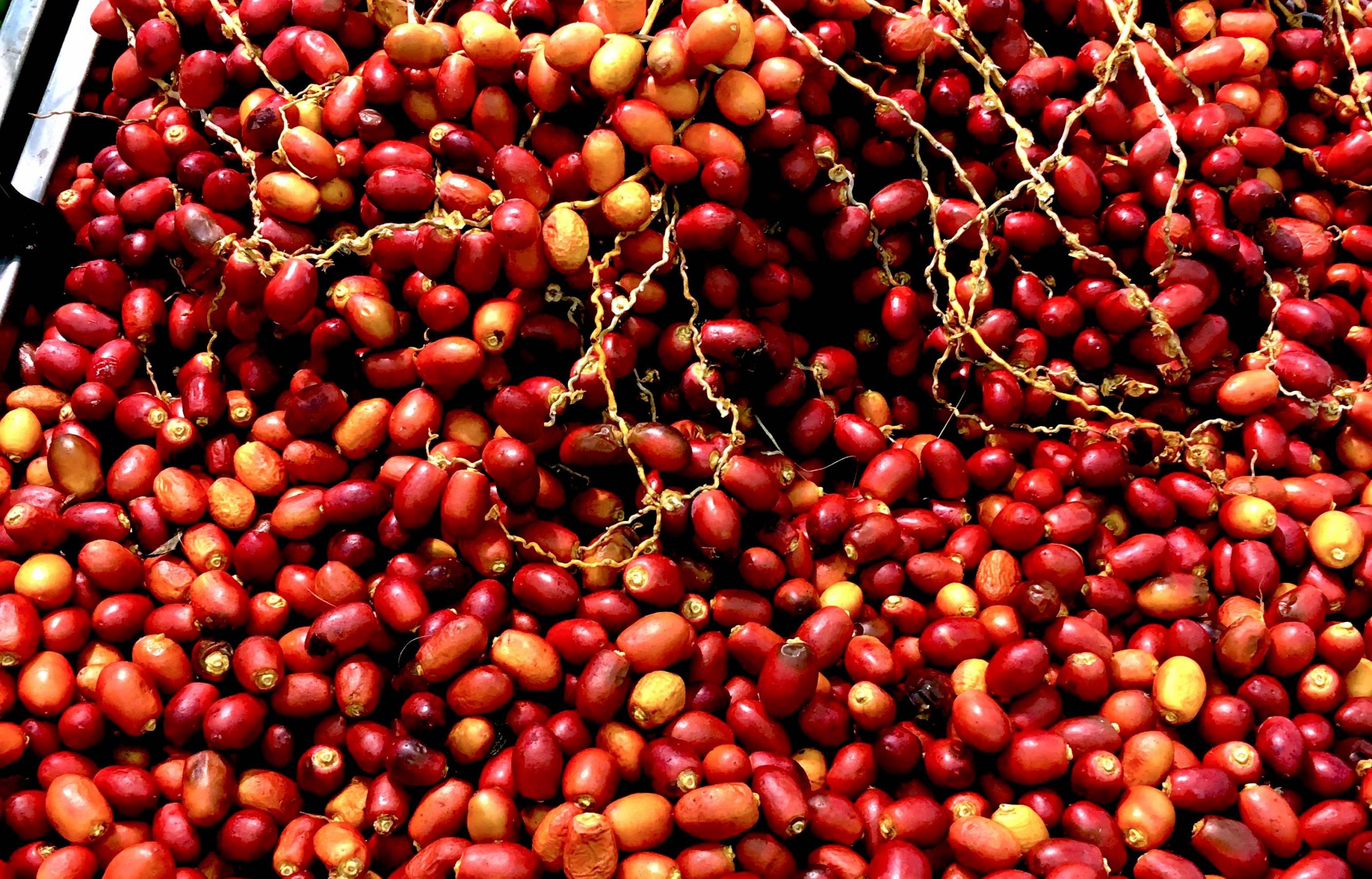Dates are the main agricultural crop in Oman and the country is the world’s 8th largest producer of dates. They are offered with coffee and as gifts, they often break the fast during Ramadan, and apparently, they kept scurvy at bay for sailors in times passed.
Traditionally, I am told, a date palm was planted for the birth of a son. The palm would grow with him, and provide nourishment throughout his lifetime.
Dates – you may think you know them, but here are five things I bet you haven’t heard before:
1) Pollinating the palm trees of village date farms involves taking flowers from the male tree to the female tree – by hand. Knowledge of how many flowers need to be applied to each tree is passed down from father to son.
2) Dates do not naturally grow in neat bunches arranged around the tree trunk. The farmer brings down the stems after the flowers have been pollinated, to safeguard the dates from the wind and to make the harvesting process easier and safer.
3) There are two types of dates – dates for eating and dates used as animal fodder.
4) Harvesting the dates involves climbing up the trunk using a rope traditionally made from dried date palm leaves.
5) The most popular date types in Oman are Fardh, Khalas and Khunaizi – Khalas is apparently the best while Khunaizi is the most sugary in taste.


